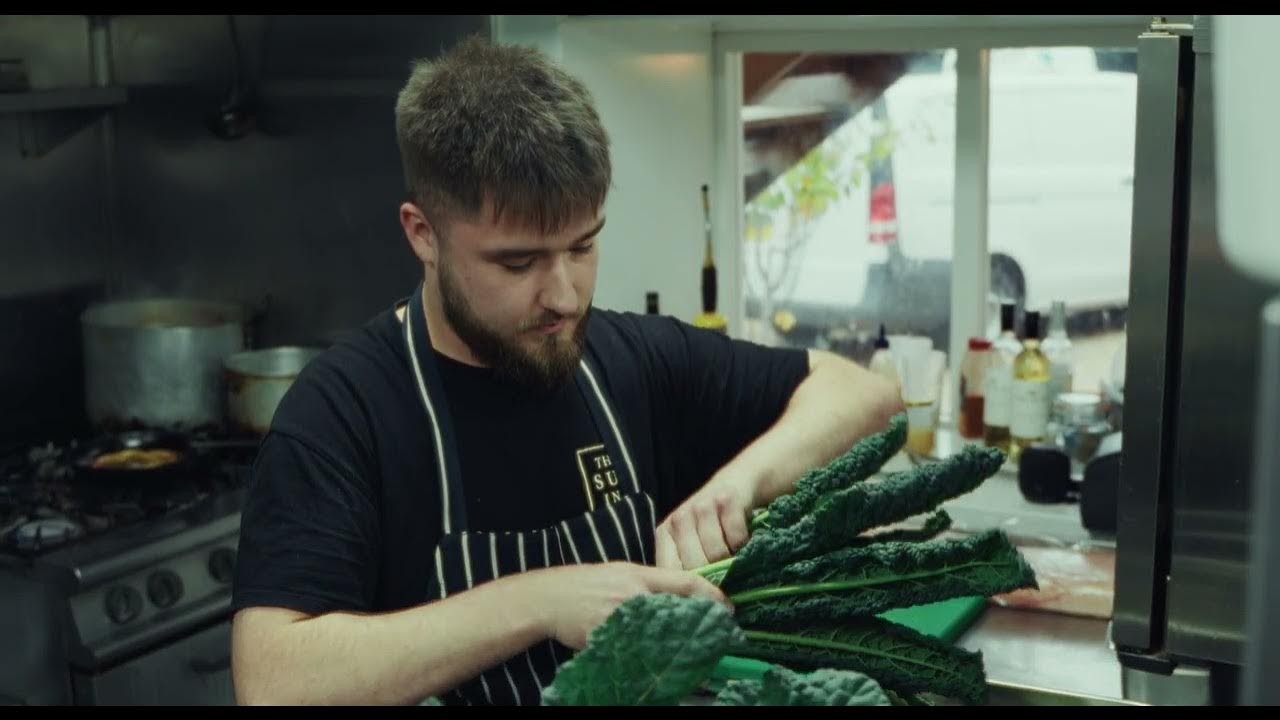HKMU - Sustainability in Action: Food Choices
Summary
TLDRThis episode of 'Sustainability in Action' explores the impact of food choices on the environment, emphasizing the importance of sustainable practices. From students reducing food waste and opting for plant-based diets to restaurants adopting green kitchens and donating surplus food, the episode highlights collective efforts toward sustainability. The script also covers the role of sustainable farming and fishing, encouraging consumers to choose organic, local produce and responsibly sourced seafood. By making informed choices, individuals and businesses can significantly reduce their environmental footprint and contribute to a more sustainable food system.
Takeaways
- 😀 Hong Kong offers a diverse food culture, from street food to upscale restaurants, but sustainability is key to maintaining this environment.
- 😀 Sustainable food choices are essential in reducing resource consumption and energy usage, encouraging thoughtful eating habits.
- 😀 Managing food waste by consuming leftovers is an effective way to save money and reduce environmental impact, promoting sustainability.
- 😀 Shifting towards plant-based diets can reduce carbon footprints and resource consumption compared to meat production.
- 😀 Responsible food shopping, such as keeping track of expiration dates and using the first-in-first-out principle, helps prevent food waste.
- 😀 Food sustainability encompasses not only the food itself but also its production, distribution, packaging, and consumption.
- 😀 Sustainable food production involves using fewer harmful chemicals, avoiding unnecessary antibiotics, and ensuring safety for both consumers and workers.
- 😀 Restaurants are adopting measures like reducing food wastage, using biodegradable packaging, and integrating technology for sustainability.
- 😀 Green kitchen technologies, such as energy-saving refrigeration and UV-based exhaust systems, help reduce reliance on water and fossil fuels.
- 😀 Using technology in restaurants, like paperless ordering systems, improves efficiency, reduces waste, and enhances customer satisfaction.
- 😀 Local farming practices, including organic and low-carbon production, support sustainability by reducing transportation emissions and using eco-friendly techniques.
Q & A
What is the main focus of the video regarding food choices?
-The video focuses on how food choices impact sustainability, particularly the environment, energy consumption, and resource usage.
How do the students in the video contribute to food sustainability?
-The students contribute by making mindful choices, such as reducing food waste, opting for plant-based meals, managing leftovers, and supporting local produce.
What is the significance of plant-based meals in food sustainability?
-Plant-based meals use fewer resources, have a smaller carbon footprint, and contribute to reducing greenhouse gases, making them a more sustainable food choice.
How can consumers manage food waste to support sustainability?
-Consumers can reduce food waste by properly planning meals, using a 'first in, first out' system, and ensuring that food is used before it expires.
What role do restaurants play in food sustainability?
-Restaurants contribute by reducing food waste through smart practices like made-to-order buffets, using energy-efficient kitchens, and recycling food waste. They also encourage food donations to help those in need.
What is a 'green kitchen' and how does it support sustainability?
-A 'green kitchen' uses technology to reduce reliance on fossil fuels, conserve water, and decrease energy consumption, such as using UV technology for exhaust systems and energy-saving refrigerators.
What challenges do restaurants face when implementing sustainability initiatives?
-The main challenges include the manpower required to implement changes, the cost of initial technology, and ensuring employees understand and embrace sustainable practices.
How does technology help in improving restaurant sustainability?
-Technology improves restaurant sustainability by reducing paper usage through digital ordering systems, increasing efficiency, and reducing energy consumption and food waste.
How does overfishing impact food sustainability in Hong Kong?
-Overfishing leads to the depletion of fish populations and disrupts ecosystems, threatening food security and sustainability. Efforts to reduce consumption of endangered fish species help mitigate these effects.
What sustainable farming practices are being adopted in Hong Kong?
-Sustainable farming in Hong Kong includes organic farming, low-carbon production, minimizing transportation distances, avoiding harmful chemicals, and using techniques like crop rotation and hydroponics.
Outlines

This section is available to paid users only. Please upgrade to access this part.
Upgrade NowMindmap

This section is available to paid users only. Please upgrade to access this part.
Upgrade NowKeywords

This section is available to paid users only. Please upgrade to access this part.
Upgrade NowHighlights

This section is available to paid users only. Please upgrade to access this part.
Upgrade NowTranscripts

This section is available to paid users only. Please upgrade to access this part.
Upgrade NowBrowse More Related Video

Cheuk Yin Lee - Farm To Fork

SUSTAINABLE LIVING | BISTIK EP 1

Unprocessed -- how I gave up processed foods (and why it matters) | Megan Kimble | TEDxTucsonSalon

HKMU - Sustainability in Action: Sustainability and You

Semana de Ética PUCPR 2016 - Consumo Consciente - Gastronomia Responsável

O Que É Sustentabilidade
5.0 / 5 (0 votes)